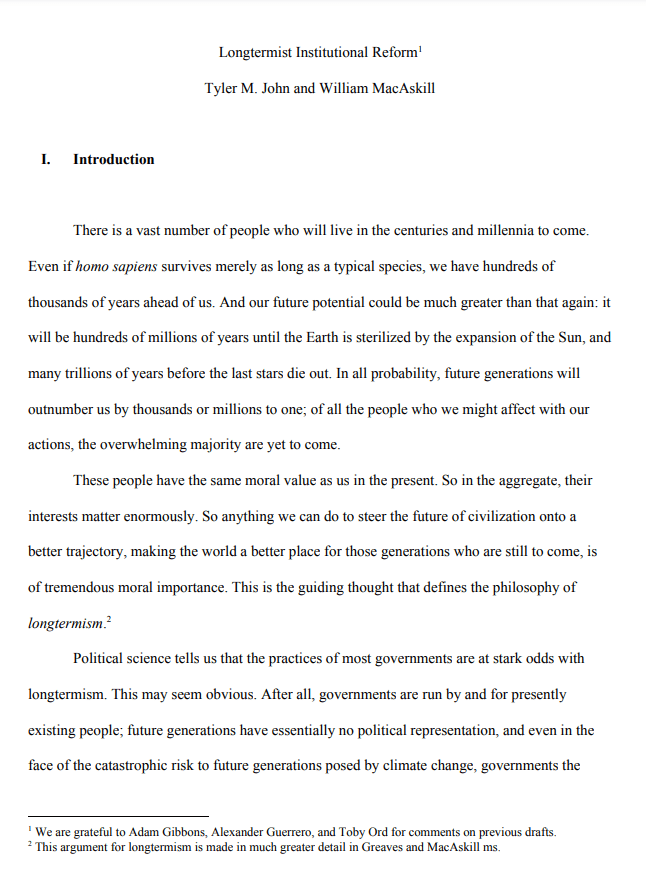Longtermist institutional reform
Tyler M. John (Rutgers University) and William MacAskill (Global Priorities Institute, Oxford University)
GPI Working Paper No. 14-2020, published in The Long View: Essays on Policy, Philanthropy, and the Long-Term Future
There is a vast number of people who will live in the centuries and millennia to come. Even if homo sapiens survives merely as long as a typical species, we have hundreds of thousands of years ahead of us. And our future potential could be much greater than that again: it will be hundreds of millions of years until the Earth is sterilized by the expansion of the Sun, and many trillions of years before the last stars die out. In all probability, future generations will outnumber us by thousands or millions to one; of all the people who we might affect with our actions, the overwhelming majority are yet to come. [...]
Other working papers
It Only Takes One: The Psychology of Unilateral Decisions – Joshua Lewis (New York University) et al.
Sometimes, one decision can guarantee that a risky event will happen. For instance, it only took one team of researchers to synthesize and publish the horsepox genome, thus imposing its publication even though other researchers might have refrained for biosecurity reasons. We examine cases where everybody who can impose a given event has the same goal but different information about whether the event furthers that goal. …
What power-seeking theorems do not show – David Thorstad (Vanderbilt University)
Recent years have seen increasing concern that artificial intelligence may soon pose an existential risk to humanity. One leading ground for concern is that artificial agents may be power-seeking, aiming to acquire power and in the process disempowering humanity. A range of power-seeking theorems seek to give formal articulation to the idea that artificial agents are likely to be power-seeking. I argue that leading theorems face five challenges, then draw lessons from this result.
Simulation expectation – Teruji Thomas (Global Priorities Institute, University of Oxford)
I present a new argument for the claim that I’m much more likely to be a person living in a computer simulation than a person living in the ground-level of reality. I consider whether this argument can be blocked by an externalist view of what my evidence supports, and I urge caution against the easy assumption that actually finding lots of simulations would increase the odds that I myself am in one.

